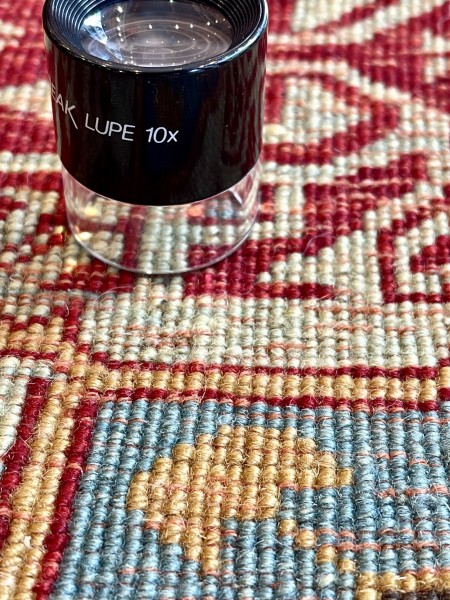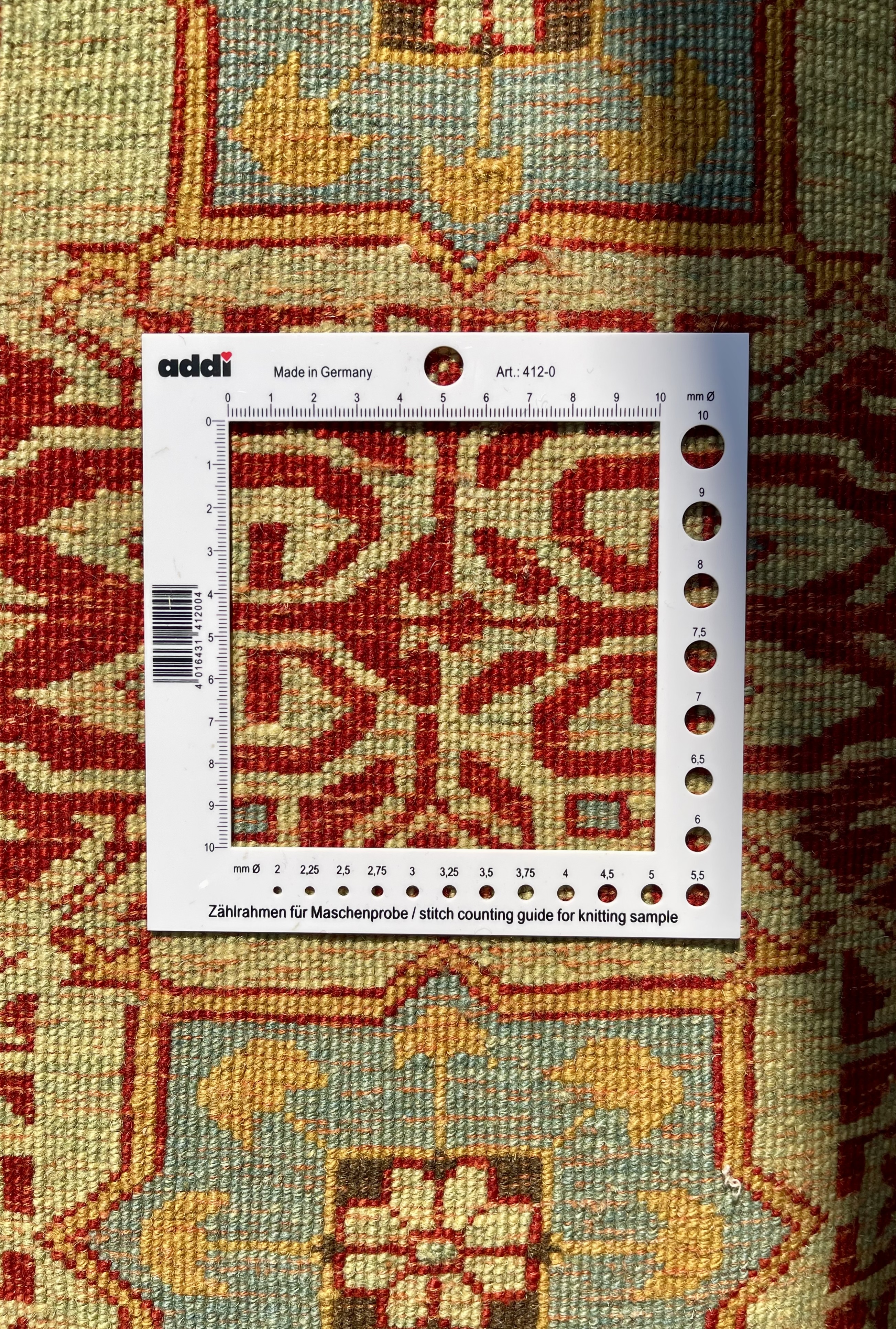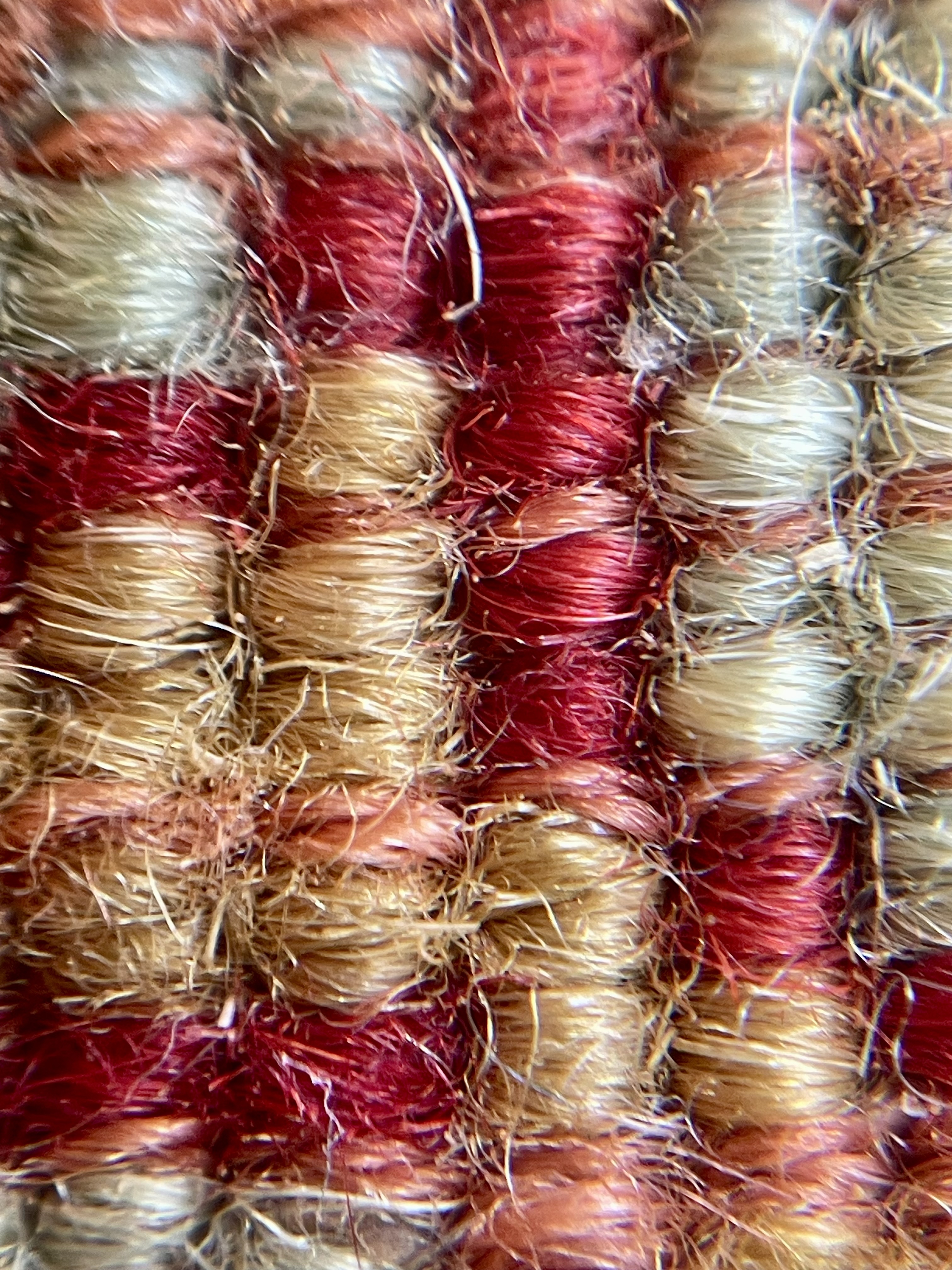
What is Knot Density?
Knot density is a measure of how tightly knotted a rug is. It is typically expressed as the number of knots per square inch (KPSI) or per square decimeter (KPSD). The higher the knot density, the more detailed and intricate the rug’s design can be. High-knot rugs require more time and skilled craftsmanship, making them more valuable.
When shopping for a handwoven rug, one of the key factors determining its quality and value is the knot density. Knot density refers to the number of knots tied within a specific area, commonly measured in knots per square inch (KPSI) or knots per square decimeter (KPSD). This density impacts the rug's durability, texture, design detail, weaving time, and cost. In this Blog article, we’ll explain how knot density is measured, what it means for rug quality, and how different types of rugs compare.
How to Calculate Knot Density
To determine the knot density of a rug, follow these steps:
Measure an inch along both the vertical and horizontal axes of the rug.
Count the number of knots in each direction (warp and weft).
Multiply these two numbers to get knots per square inch (kpsi).
For example, if a rug has 20 knots per inch horizontally and 20 knots per inch vertically, the knot density is:
20 x 20 = 400 kpsi
For knots per square decimeter (kpsd), use the same method but measure in centimeters. Since 1 decimeter equals 10 cm, multiply the knots per cm count over a 10 cm x 10 cm area.
Conversion from KPSI to KPSD
To convert knots per square inch to knots per square decimeter:
1 square inch = 6.45 square cm
1 square decimeter = 100 square cm
Multiply kpsi by 15.5 to approximate kpsd
For example, if a rug has 400 kpsi:
400 x 15.5 = 6,200 knots per square decimeter
How Knot Density Affects Rug Quality
Knot density directly influences a rug’s durability, softness, and level of detail. Higher knot density allows for more intricate patterns, while lower knot density provides a coarser, more traditional look. Here’s how different densities compare:
Carpets from our collection follow traditional knot densities based on antique rugs from historical weaving regions. These rugs are woven using the same traditional techniques and knot densities as their antique counterparts, ensuring authenticity and craftsmanship;
Heriz (24 × 39 kpsd): Coarse but durable, featuring large-scale geometric patterns.
Azeri - Modern (34 × 40 kpsd): A balance between detail and texture, ideal for contemporary designs.
Shirvan (35 × 42 kpsd): Finer knots with a compact weave, allowing for detailed tribal motifs.
Bidjar - Senna (39 × 45 kpsd): Exceptionally dense, known for durability and intricate patterns.
Ushak - Kazak (29 × 36 kpsd): Traditionally woven with a looser weave, maintaining a soft, rustic feel.
Mamluk-Ottoman (39 × 39 kpsd): Symmetrical knotting, offering highly decorative and historic designs.
Seljuk (26 × 30 kpsd): Characterized by traditional motifs with a balanced structure.
Kirman (50 × 50 kpsd): Among the finest, allowing for the most detailed floral and pictorial designs.


Which Knot Density is Best for You?
All the rugs from our collection are crafted using high-quality materials and traditional techniques, ensuring both durability and aesthetic appeal. Whether you are looking for a finely detailed piece or a rug with bold, geometric patterns, our selection maintains the authentic knot densities of historical weaving regions. Each rug is designed to be a timeless investment, offering both beauty and functionality for any space.
Understanding knot density helps in making an informed decision when buying a handwoven rug. Whether you prefer a finely knotted masterpiece or a bold tribal rug, knowing the kpsi or kpsd will guide you to the best choice for your needs. If you’re looking for a high-quality handwoven rug, explore our collection at Ararat Rugs and find the perfect piece for your home.
If you have any questions about rug quality, feel free to contact us!
